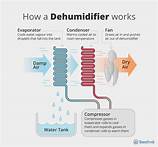What Is Pet Dander Allergies
Pet dander allergies are a common type of allergy that is caused by exposure to the tiny flakes of skin that are shed by animals. These flakes of skin can contain proteins that can trigger an allergic reaction in some people. Pet dander allergies can cause a variety of symptoms, including sneezing, a runny nose, itchy eyes, and a sore throat.

Symptoms of Pet Dander Allergies
The most common symptoms of pet dander allergies are:
1. Sneezing
2. A runny nose
3. Itchy eyes
4. A sore throat
5. Nasal congestion
6. Wheezing
7. Shortness of breath
8. Skin rashes
9. Hives
10. Eczema
Causes of Pet Dander Allergies
Pet dander allergies are caused by exposure to the tiny flakes of skin that are shed by animals. These flakes of skin can contain proteins that can trigger an allergic reaction in some people. The most common animals that cause pet dander allergies are cats, dogs, rabbits, and rodents. However, any animal with fur or feathers can potentially cause an allergic reaction.
Risk Factors for Pet Dander Allergies
The following factors can increase your risk of developing pet dander allergies:
1. Having a family history of allergies
2. Having asthma
3. Being exposed to pet dander early in life
4. Living in a humid environment
5. Having a pet with long hair or fur
Diagnosis of Pet Dander Allergies
If you think you may have a pet dander allergy, your doctor will likely start by asking you about your symptoms and medical history. They may also perform a physical exam and order blood tests to confirm the diagnosis. In some cases, your doctor may recommend an allergy skin test to identify the specific animal that is causing your allergy.
Treatment of Pet Dander Allergies
There is no cure for pet dander allergies, but there are a number of treatments that can help to relieve symptoms. These treatments include:
1. Medications: Over-the-counter and prescription medications can help to relieve symptoms of pet dander allergies. These medications include antihistamines, decongestants, and corticosteroids.
2. Immunotherapy: Immunotherapy is a type of treatment that helps to desensitize your immune system to pet dander. This treatment involves receiving injections of pet dander over a period of time.
3. Avoidance: The best way to prevent pet dander allergy symptoms is to avoid exposure to pet dander. This may mean avoiding contact with animals or keeping animals out of your home.
Declaration: All article resources on this website, unless otherwise specified or labeled, are collected from online resources. If the content on this website infringes on the legitimate rights and interests of the original author, you can contact this website to delete it.





